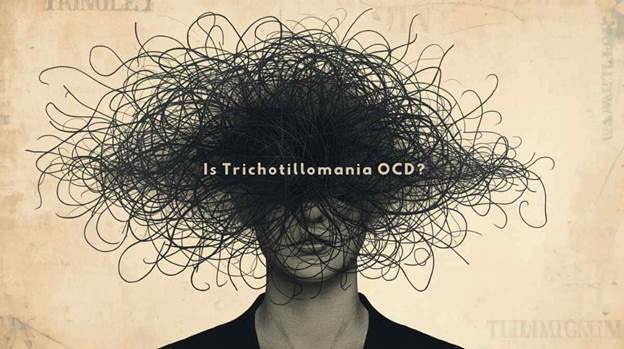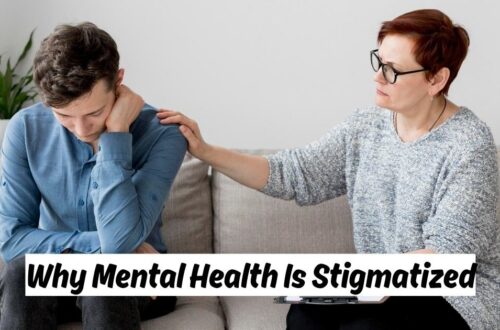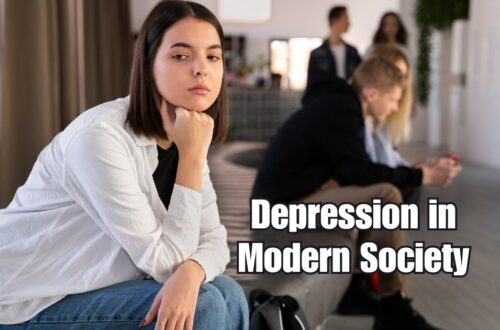Is trichotillomania OCD or a completely separate condition? This question often arises among people who struggle with repetitive hair-pulling behaviors or know someone who does. Trichotillomania, also known as hair-pulling disorder, involves recurrent urges to pull out hair from the scalp, eyebrows, eyelashes, or other parts of the body. Since the behavior seems compulsive, it is natural to wonder whether it belongs to the obsessive-compulsive disorder (OCD) spectrum.
In this article, we will explore the definition, background, causes, relationship with OCD, treatment options, and real-life examples to better understand how trichotillomania is classified and managed.
Is Trichotillomania OCD: Definition and Background
Trichotillomania was first described in the late 19th century by French dermatologist François Henri Hallopeau. When asking “is trichotillomania OCD,” it is important to note that OCD is defined by intrusive thoughts (obsessions) and ritualistic behaviors (compulsions), while trichotillomania is classified as a body-focused repetitive behavior. People living with this condition often experience an overwhelming urge to pull their hair to ease tension or gain a sense of relief. Although both conditions share repetitive actions, the answer to “is trichotillomania OCD” lies in understanding that the two differ in underlying motivations and neurological mechanisms.
Is Trichotillomania OCD or an Impulse Control Disorder?
The classification of trichotillomania has changed significantly over time. In the past, it was grouped as an impulse control disorder. Today, experts categorize it under obsessive-compulsive and related disorders in the DSM-5 (Diagnostic and Statistical Manual of Mental Disorders). This shift raises the question: is trichotillomania OCD, or does it remain distinct? While both share overlapping features, the key differences are crucial. OCD behaviors often stem from intrusive thoughts or fears, whereas trichotillomania is more connected to tension release and sensory gratification. Understanding whether is trichotillomania OCD or a separate condition helps clarify treatment approaches and patient care.
Is Trichotillomania OCD: Symptoms to Identify
Recognizing the signs is essential for early intervention. Symptoms of trichotillomania include:
• Repeated pulling out of hair from the scalp, eyelashes, eyebrows, or body
• Noticeable hair loss or bald patches
• Strong urges or tension before pulling hair
• Relief or pleasure after the act
• Difficulty controlling or stopping the behavior despite negative effects
Unlike OCD, where compulsions are meant to neutralize intrusive thoughts, trichotillomania’s urges feel more like overwhelming habits or self-soothing responses.
Is Trichotillomania OCD: Causes and Risk Factors
The exact causes remain unclear, but several factors increase the likelihood of developing trichotillomania:
• Genetics – A family history of OCD, anxiety, or related disorders
• Brain chemistry – Imbalances in serotonin and dopamine regulation
• Stress and trauma – Emotional stress can trigger or worsen symptoms
• Personality traits – Perfectionism, impulsivity, or high sensitivity
• Environmental cues – Boredom or specific situations that trigger pulling
These risk factors demonstrate why the question “is trichotillomania OCD” is so complex, since both conditions share similar biological and psychological influences.
Is Trichotillomania OCD: Impact on Daily Life
Trichotillomania significantly affects emotional well-being, self-esteem, and social interactions. Individuals may feel embarrassed about bald spots or visible hair loss, leading them to withdraw from social activities. The constant cycle of pulling, guilt, and shame mirrors the distress OCD patients experience with compulsions. Both conditions disrupt making treatment and awareness critical.
Is Trichotillomania OCD: Treatment Options
Effective treatments can help manage symptoms, even though there is no single cure. The most common approaches include:
• Cognitive behavioral therapy (CBT) – Helps patients recognize triggers and develop healthier responses
• Habit reversal training (HRT) – Teaches awareness of urges and introduces competing actions like clenching fists
• Medication – SSRIs (selective serotonin reuptake inhibitors) or N-acetylcysteine may reduce compulsive urges
• Support groups – Sharing experiences with others reduces stigma and builds coping strategies
• Mindfulness and relaxation techniques – Helps reduce stress that triggers pulling
These treatments highlight how management of trichotillomania parallels OCD therapies, though specific methods such as HRT are particularly effective for hair-pulling.

Is Trichotillomania OCD: Real-World Example
A teenager struggling with bald patches from pulling her scalp hair often felt ashamed at school. Her parents initially thought she was just stressed, but therapy revealed she had trichotillomania. With the help of habit reversal training and mindfulness, she gradually reduced pulling episodes. This example illustrates the daily challenges of trichotillomania and why many people confuse it with OCD.
Is Trichotillomania OCD in Modern Research?
Modern research suggests that trichotillomania shares neurological pathways with OCD but also overlaps with addiction-like disorders. Brain imaging studies show abnormalities in areas linked to habit formation and impulse control. This growing evidence supports its classification within the OCD-related spectrum while acknowledging its distinct behavioral patterns.
Is Trichotillomania OCD: Social Stigma and Awareness
One of the greatest challenges for individuals living with trichotillomania is the stigma surrounding the condition. Too often, they are mislabeled as having “bad habits” or being undisciplined. Highlighting the reality that trichotillomania is a recognized mental health disorder, not a personal weakness, is essential in reducing shame. When people ask is trichotillomania OCD, the conversation shifts toward understanding rather than judgment. Just like with OCD, compassion and consistent support from family, friends, and workplaces play a vital role in making recovery more achievable.
Conclusion
Is trichotillomania OCD or not? The answer lies in recognizing that while trichotillomania is categorized under OCD-related disorders, it is not the same as OCD itself. Both conditions involve repetitive behaviors and share genetic and neurological influences, but trichotillomania is specifically focused on hair-pulling urges. With proper diagnosis, therapy, and support, individuals can manage symptoms and improve their quality of life.





